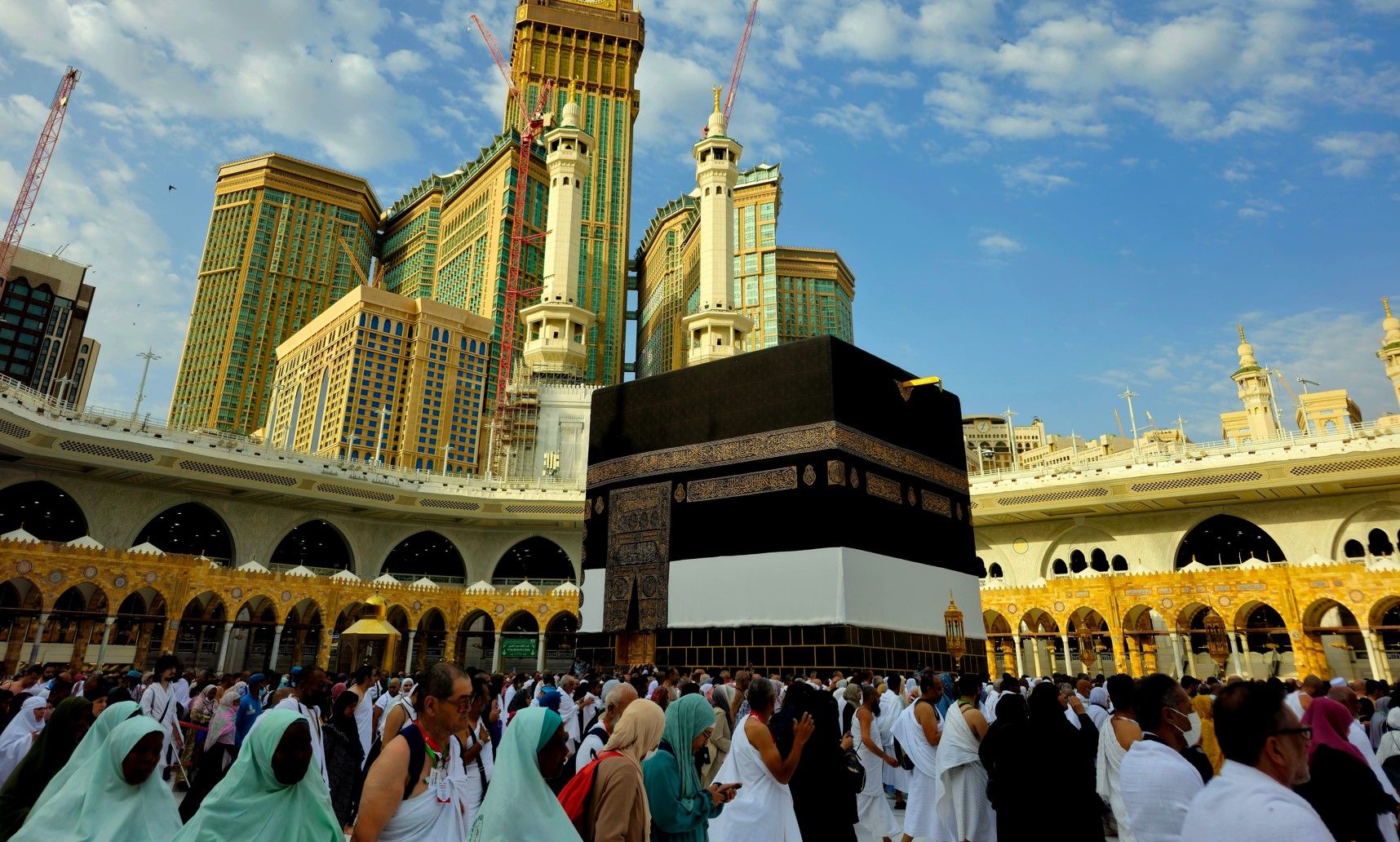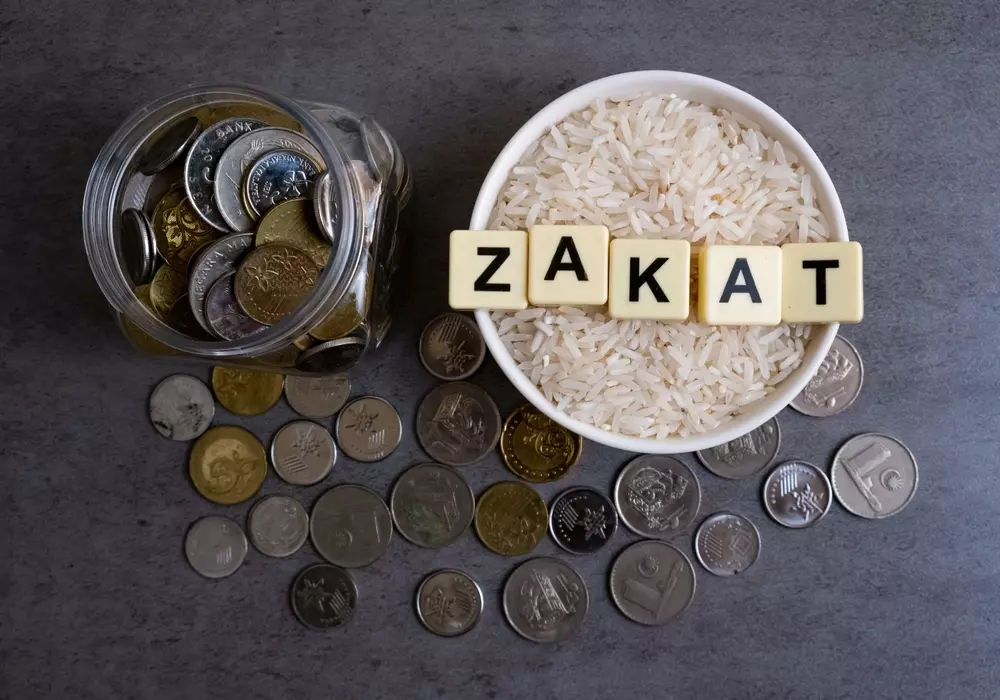Hajj, the annual pilgrimage to Mecca, holds profound significance in the Muslim faith. It is not only a religious obligation but also a deeply spiritual journey that connects Muslims with the essence of their beliefs and heritage. As the fifth pillar of Islam, Hajj represents submission to Allah, fostering spiritual renewal, unity, and personal growth. This sacred journey transforms lives and serves as a reminder of the enduring values that Islam teaches. This means that Hajj has a key role in strengthening faith, fostering unity among Muslims, and promoting personal reflection.
Hajj as a Pillar of Islam
The Five Pillars of Islam form the foundation of a Muslim’s faith and practices, and Hajj is among these essential acts. It is unique because it requires Muslims to embark on a physical and spiritual journey to the holy city of Mecca.
The Quran underscores the obligation in Surah Al-Imran (3:97): “And [due] to Allah from the people is a pilgrimage to the House – for whoever is able to find to there a way.”
For those who are physically and financially capable, Hajj is an obligatory act that must be completed at least once in a lifetime. This pilgrimage goes beyond routine worship, symbolizing the ultimate act of submission to Allah and reflecting a Muslim’s commitment to the faith. It is not just an individual duty but a profound communal and spiritual experience.
The Spiritual Significance of Hajj
Hajj is a journey that deeply impacts the soul, leading Muslims to reflect on their lives, seek forgiveness, and renew their connection to Allah. It serves as a reminder of the fleeting nature of worldly life and the eternal significance of the hereafter. Each stage of Hajj offers an opportunity for spiritual growth and reflection.
Before beginning the pilgrimage, Muslims enter a state of spiritual purity by donning simple white garments known as Ihram. This act removes distinctions of wealth and status, emphasizing the equality of all before Allah. During the Tawaf, pilgrims circle the Kaaba in aAn act of devotion, and in Sa’i, they traverse between the hills of Safa and Marwah, reenacting Hajar’s (Hagar’s) search for water. On the Day of Arafat, pilgrims gather in prayer and supplication, which is regarded as one of the most sacred moments of the pilgrimage. It is a profound experience of spiritual renewal, akin to standing before Allah on the Day of Judgment.
Through these sacred rituals, Hajj fosters a deep sense of humility, submission, and spiritual purification, making it a transformative experience for those who undertake it.
Hajj as a Symbol of Unity
Hajj is a powerful expression of unity within the Muslim Ummah (community). Each year, millions of Muslims from diverse ethnicities, nationalities, and cultural backgrounds gather in Mecca, bound by their shared faith. This gathering illustrates the universality of Islam and serves as a reminder of the bonds that unite all believers.
The simplicity of the Ihram garments eliminates visible distinctions of wealth, class, and nationality, placing all pilgrims on an equal footing before Allah. This sense of equality fosters humility and emphasizes the importance of brotherhood and sisterhood in Islam. Pilgrims share in collective worship, prayer, and rituals, further strengthening the sense of belonging to a global faith.
The unity experienced during Hajj transcends geographical boundaries and reinforces the idea that Islam is a universal religion. This shared experience not only brings Muslims closer to one another but also reaffirms their commitment to the principles of compassion, solidarity, and mutual respect.
Commemorating the Legacy of Prophet Ibrahim
Hajj also serves as a commemoration of the faith and sacrifices of Prophet Ibrahim (Abraham), his wife Hajar, and their son Ismail (Ishmael). These figures are central to Islamic tradition, and their story provides the foundation for many Hajj rituals. The willingness of Prophet Ibrahim to sacrifice his son in obedience to Allah is a profound example of faith and submission. This act is honoured during Eid al-Adha, when Muslims worldwide perform the ritual sacrifice of an animal as a symbol of their devotion.
Hajar’s perseverance in searching for water for her son, which led to the miraculous emergence of the Zamzam spring, is another key moment honoured during Hajj. Pilgrims reenact her struggle through the Sa’i ritual, which serves as a reminder of the importance of patience, trust in Allah, and unwavering faith in times of adversity.
By commemorating these events, Hajj connects Muslims with their spiritual heritage, inspiring them to emulate the values of trust, resilience, and devotion exemplified by Prophet Ibrahim and his family.
More Hajj Quotes
“[It is] the place whereon Abraham once stood; and whoever enters it finds inner peace. Hence, pilgrimage unto the Temple is a duty owed to God by all people who are able to undertake it.” (Qur’an 3:97)
“And proclaim to mankind Al-Hajj (Pilgrimage). They will come to you on foot and on every lean camel, they will come from every deep valley and distant place to perform Hajj” (Qur’an 22:27)
The Prophet Mohammed (PBUH) said: “Whoever performs Hajj to this house — Ka’bah — and does not commit any obscenity and wrongdoing, he, or she, will come out as the day he, or she, was born — pure and free from sins.”
A Journey of Personal Growth
Hajj is not only a spiritual and communal journey but also a deeply personal one. The physical and mental demands of the pilgrimage require pilgrims to develop patience, endurance, and self-discipline. Navigating the crowded holy sites, enduring long hours of prayer, and adapting to challenging conditions push pilgrims beyond their usual limits, fostering resilience and humility.
The experience also teaches gratitude and selflessness. Pilgrims witness the generosity and kindness of others and come to appreciate the blessings in their lives. For many, Hajj becomes a turning point, inspiring them to lead more virtuous and spiritually conscious lives. Upon returning home, pilgrims often carry a renewed sense of purpose and a commitment to living in accordance with Islamic principles.



